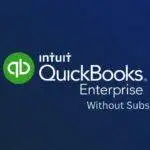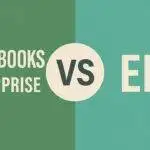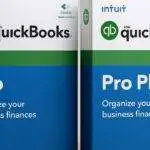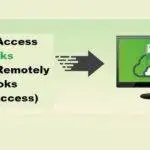In recent years, Intuit has made significant shifts in its product offerings, signaling the gradual discontinuation of QuickBooks Desktop. With announcements like the end of security updates for QuickBooks Desktop 2022 after May 31, 2025, and the cessation of new subscriptions for several desktop versions in September 2024, many businesses are questioning whether QuickBooks Desktop is on its way out. This blog explores the implications of these changes and why transitioning to cloud-based solutions could be a game-changer for your business.
The Decline of QuickBooks Desktop: What’s Happening?
QuickBooks Desktop has been a trusted accounting solution for decades, offering robust features like advanced inventory tracking and industry-specific tools. However, Intuit’s recent decisions suggest a strategic shift toward cloud-based platforms like QuickBooks Online. Key developments include:
- End of Support: Security updates for QuickBooks Desktop 2022 will cease after May 31, 2025. This means businesses using outdated versions risk losing vital accounting records due to lack of support and monitoring.
- Subscription Termination: Intuit stopped selling new subscriptions for products like QuickBooks Desktop Pro Plus and Premier Plus in late 2024.
- Focus on Online Platforms: Intuit appears to be encouraging users to migrate to QuickBooks Online, which offers cloud-based convenience and automatic updates.
Why Businesses Are Hesitant to Let Go of QuickBooks Desktop?
Despite these changes, many businesses remain loyal to QuickBooks Desktop due to its advanced functionalities. According to research by Gartner and Forrester, QuickBooks Desktop often outperforms its online counterpart in areas like customization and industry-specific features. Some reasons for reluctance include:
- Robust Features: The desktop version excels in job costing, advanced reporting, and inventory management.
- One-Time Purchase Model: Unlike subscription-based QuickBooks Online, the desktop version allows users to pay once and use it indefinitely.
- Data Control: Businesses prefer local data storage over cloud storage for added security.
However, these advantages come with limitations such as restricted remote access and manual updates—factors that are increasingly incompatible with modern business needs.
The Case for Moving to the Cloud
Migrating to cloud-based solutions like QuickBooks Online or hosted versions of QuickBooks Desktop can address many pain points associated with traditional desktop setups. Here’s how:
1. Accessibility Anytime, Anywhere
Cloud-hosted accounting software enables remote access from any device with an internet connection. This flexibility is invaluable for businesses with distributed teams or those requiring real-time collaboration.
2. Enhanced Security
Cloud providers offer robust security measures such as encryption and automatic backups, reducing the risk of data loss compared to local storage systems.
3. Scalability
Cloud solutions are designed to grow with your business. Whether you’re a small startup or a large enterprise, you can easily scale up resources without investing in new hardware.
4. Automatic Updates
Unlike QuickBooks Desktop, which requires manual updates, cloud-based platforms ensure that you always have access to the latest features without additional effort.
5. Cost Efficiency
Hosting services eliminate the need for expensive IT infrastructure and personnel, allowing businesses to focus resources on growth rather than maintenance.
What Moving to the Cloud Means for Your Business?
Transitioning from QuickBooks Desktop to a cloud-based solution is not just about adapting to Intuit’s change related to discontinuation of QuickBooks Desktop—it’s about future-proofing your business operations. Here’s what you can expect:
Improved Collaboration
Cloud-hosted accounting platforms allow multiple users to access data simultaneously, fostering teamwork and efficiency across departments.
Business Continuity
With data stored securely in the cloud, you can ensure uninterrupted operations even during unforeseen events like hardware failures or natural disasters.
Streamlined Workflows
Cloud hosting platform integrates seamlessly with third-party applications, enabling automation and reducing manual tasks.
How OneUp Networks Can Help
At OneUp Networks, we specialize in cloud hosting solutions tailored for businesses transitioning from desktop software. Here’s how we stand out:
- Customized Hosting Services: We host licensed copies of QuickBooks Desktop on secure servers, combining its robust features with cloud accessibility.
- 24/7 IT Support: Our round-the-clock support ensures that your accounting operations run smoothly without interruptions.
- Scalable Solutions: Whether you’re a small business or an enterprise, our hosting plans are designed to meet your unique needs.
- Enhanced Security Protocols: We prioritize data protection through encryption and regular backups.
Real-Life Example: A Small Business Success Story
A small retail business that relied on QuickBooks Desktop for inventory management but struggled with remote access during the pandemic. By migrating their desktop software to OneUp Networks’ cloud hosting platform, they gained:
- Remote access for their distributed team
- Improved collaboration across multiple locations
- Reduced IT costs by eliminating the need for local servers
This transition not only streamlined their operations but also positioned them for scalable growth.
Conclusion: The Future is Cloud-Based
While QuickBooks Desktop may not be entirely “dead,” its gradual discontinuation signals a clear trend toward cloud computing in accounting software. Businesses that embrace this shift will benefit from enhanced accessibility, security, and scalability—key factors in staying competitive in today’s digital economy.
If you’re ready to make the leap but unsure where to start, OneUp Networks is here to guide you through every step of your transition. Contact us today to explore how our hosting solutions can transform your accounting workflows!














